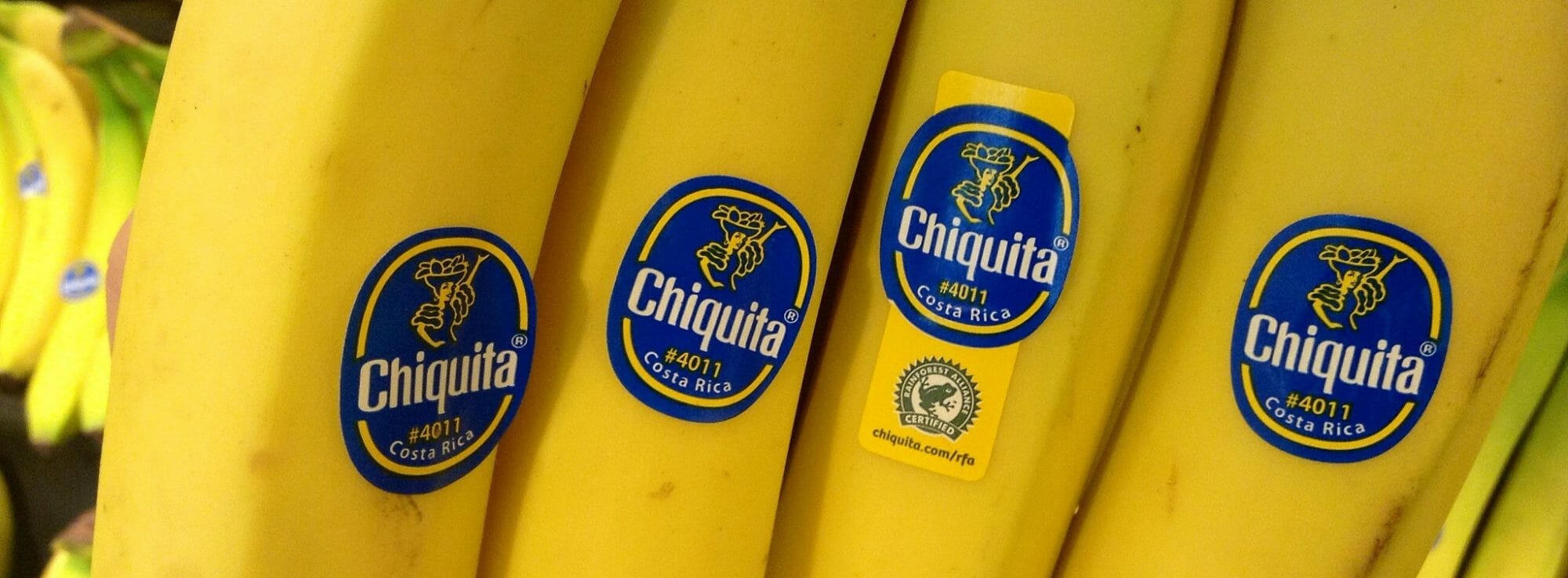The families of victims killed by Colombian terrorists are finally facing off against Chiquita Brands International, the corporate giant accused of financing their loved ones’ murder, in a federal courtroom in West Palm Beach.
The trial follows over a decade of litigation regarding illegal payments made by Chiquita to Autodefensas Unidas de Colombia (AUC), a militant group notorious for kidnapping civilians, mutilating their bodies, and leaving them for their families to find.
Attorneys for Chiquita claim the company had no choice but to pay the terrorists nearly $2 million in the late 1990s and early 2000s to protect its Colombian employees from further violence.

Trial against Chiquita, accused of helping terrorists kill thousands (Credits: EarthRights International)
However, lawyers for the victims’ families argue that Chiquita willingly partnered with the AUC to protect its profits and quell employee unrest by any means necessary.
This trial comes almost two decades after Chiquita executives pleaded guilty to financing the AUC in a New York courtroom.
The company made a deal with federal prosecutors, paying a $25 million fine but avoiding additional criminal charges, allowing executives to move on without serving a day in jail. None of the surviving victims received any compensation from the payout.
West Palm Beach attorney Jack Scarola, representing the victims’ families, delivered a 90-minute opening statement on Tuesday, weaving a geopolitical history lesson with vivid references to the “savage slaughter,” mass executions, mutilations, and torture perpetrated by the AUC.
He argued that Chiquita invested in the conflict, purchasing abandoned land at bargain prices and hiring thousands of Colombians to farm it, despite the worsening war.

Chiquita Brands International (Credits: Britannica)
Scarola alleged that Chiquita executives met with AUC leader Carlos Castaño in 1997, leading to over 100 documented payments to the AUC, with evidence of even more undocumented payments. He urged jurors to consider Chiquita as liable as the masked men who pulled the trigger on the automatic weapons that killed AUC victims.
Chiquita attorney Michael Cioffi countered that the company was a victim of extortion by the AUC, with no choice but to pay up to protect its people and property.
He dismissed the notion that the AUC had Chiquita’s best interests in mind, arguing that the company was a force for good in a chaotic environment, providing a “gold-standard work environment” and top-notch produce.
The trial, expected to last at least a month, will hear from employees who agree that Chiquita acted with their safety in mind. Over 7,500 people who lost loved ones during the AUC’s campaign have filed suit against Chiquita, with suits from around the country consolidated and being considered by U.S. District Judge Kenneth Marra in West Palm Beach.























